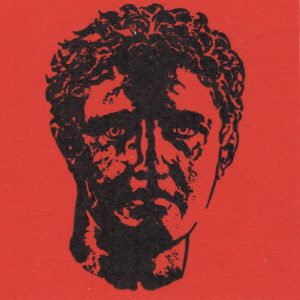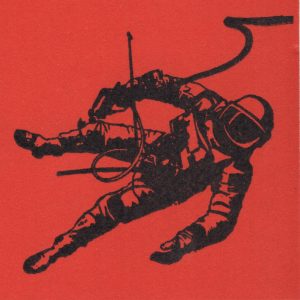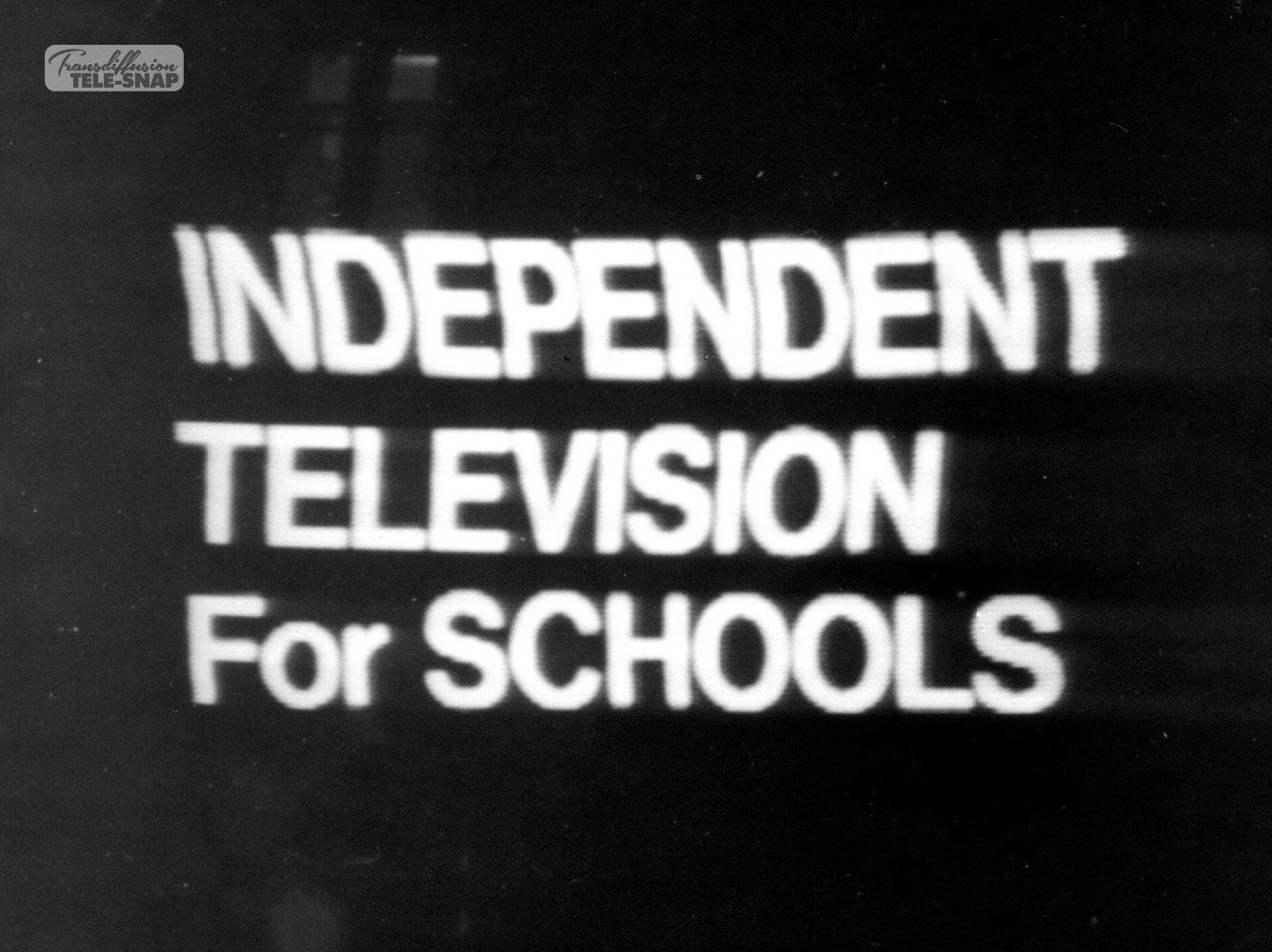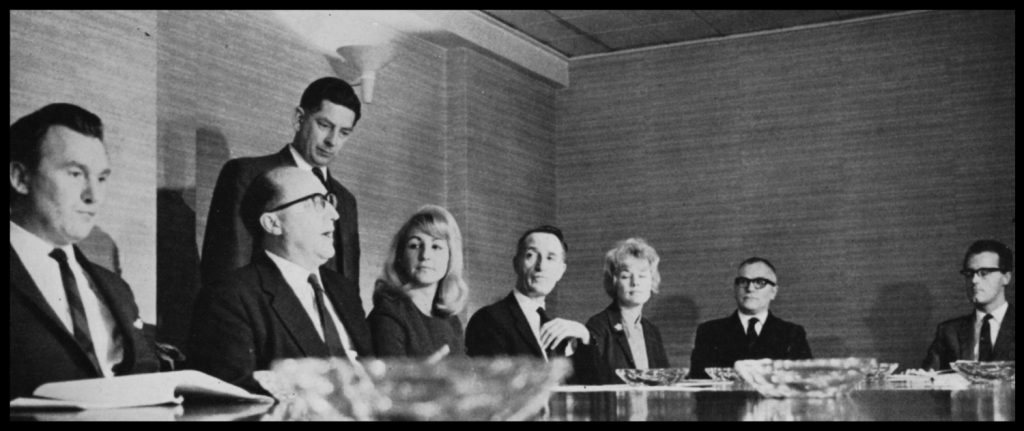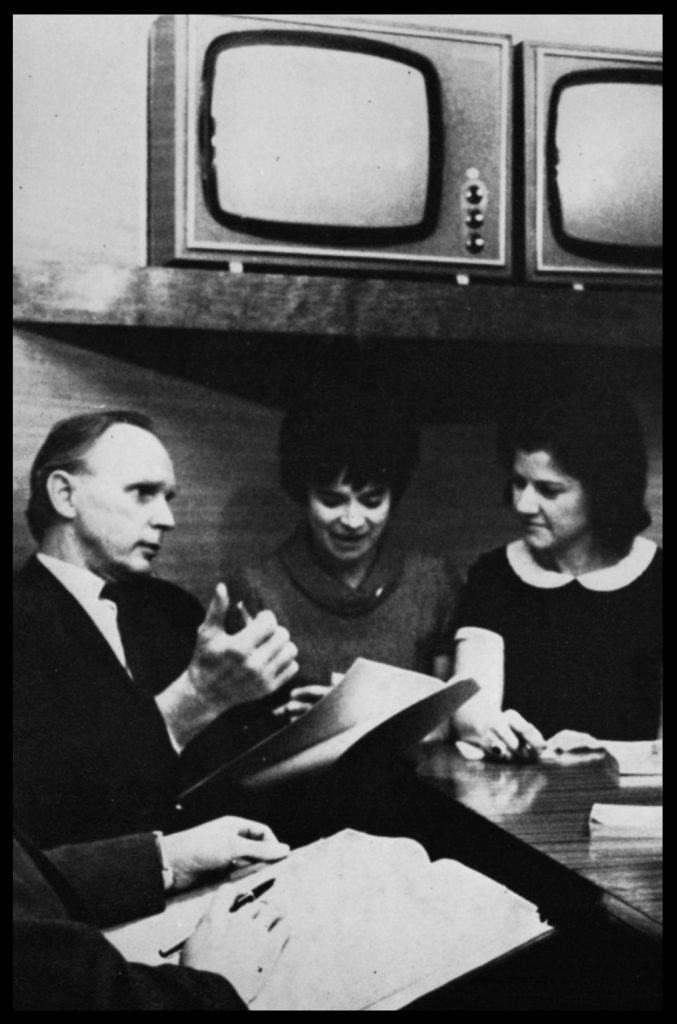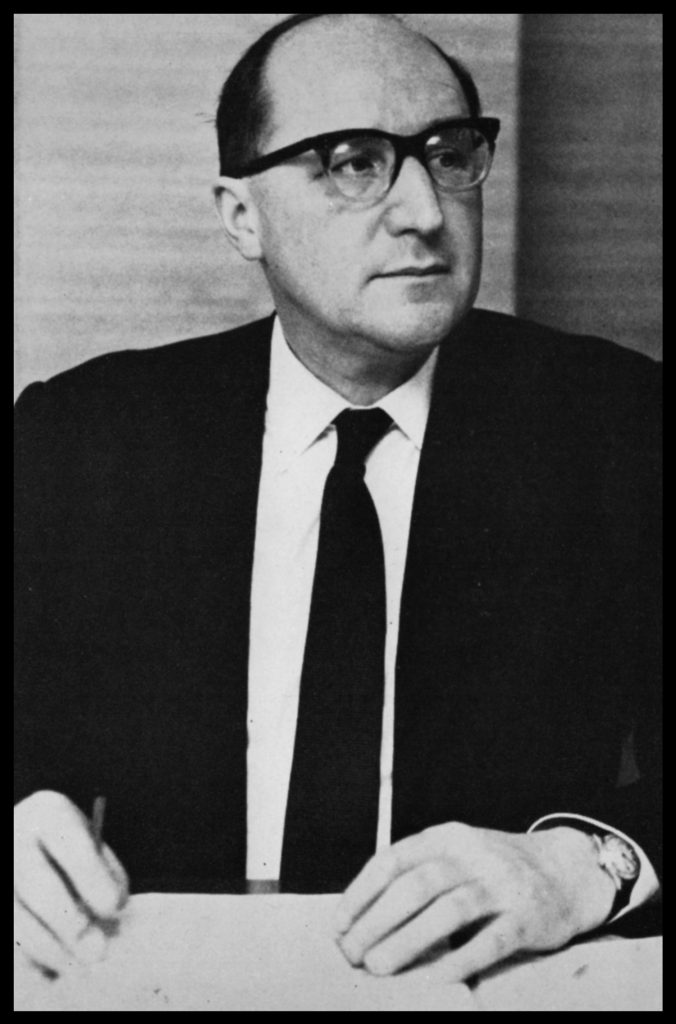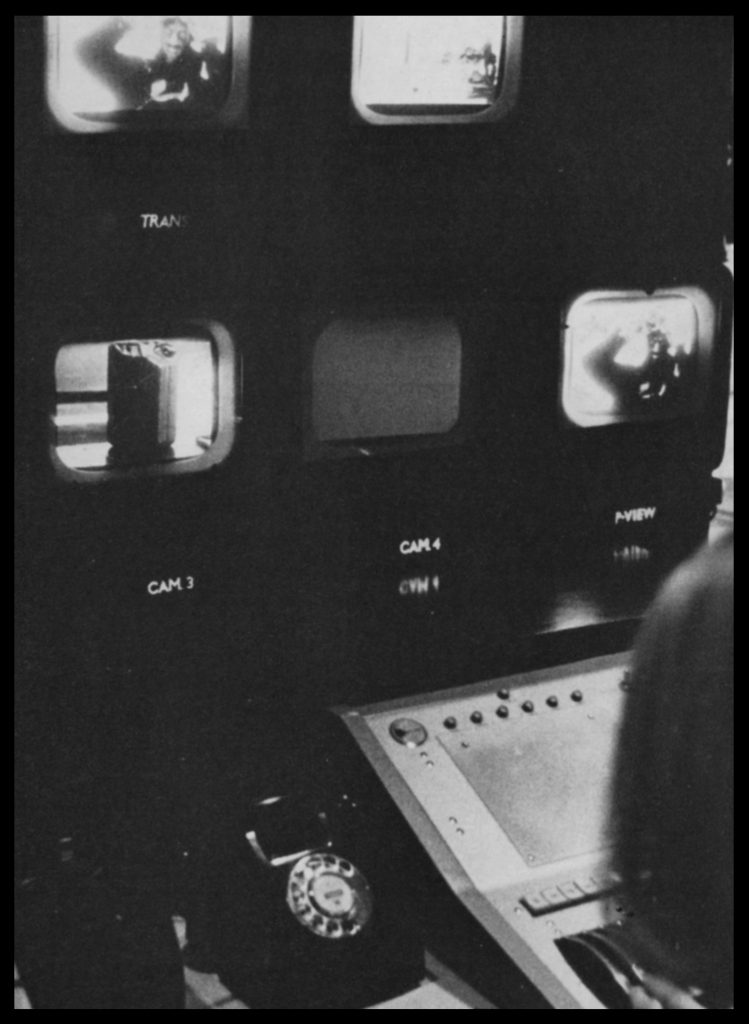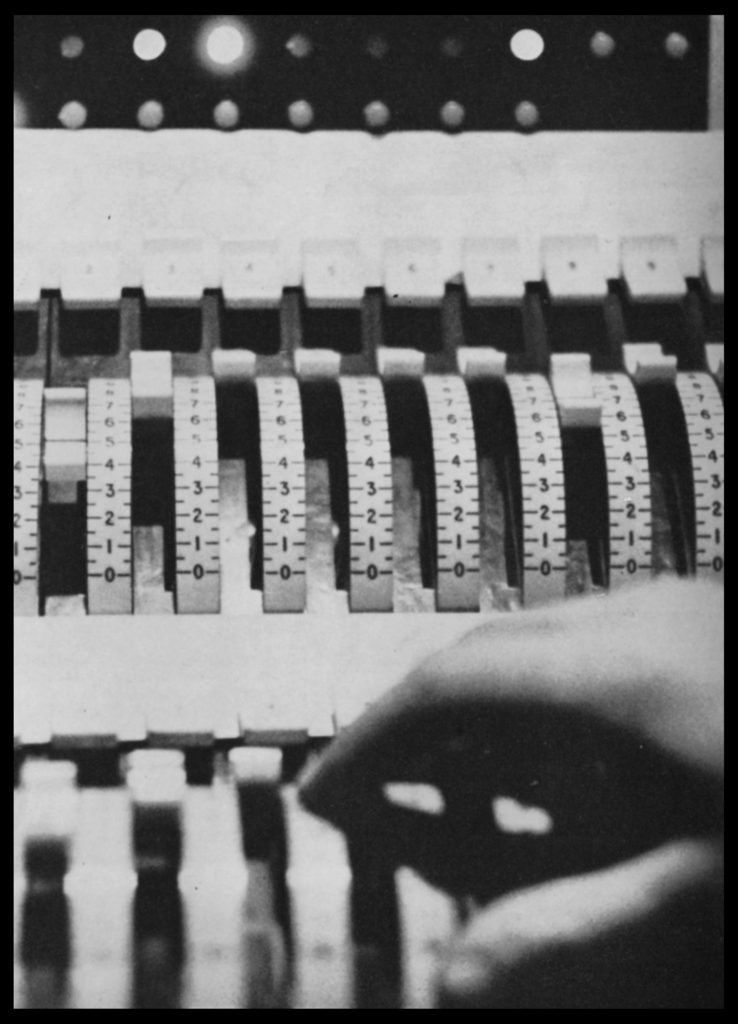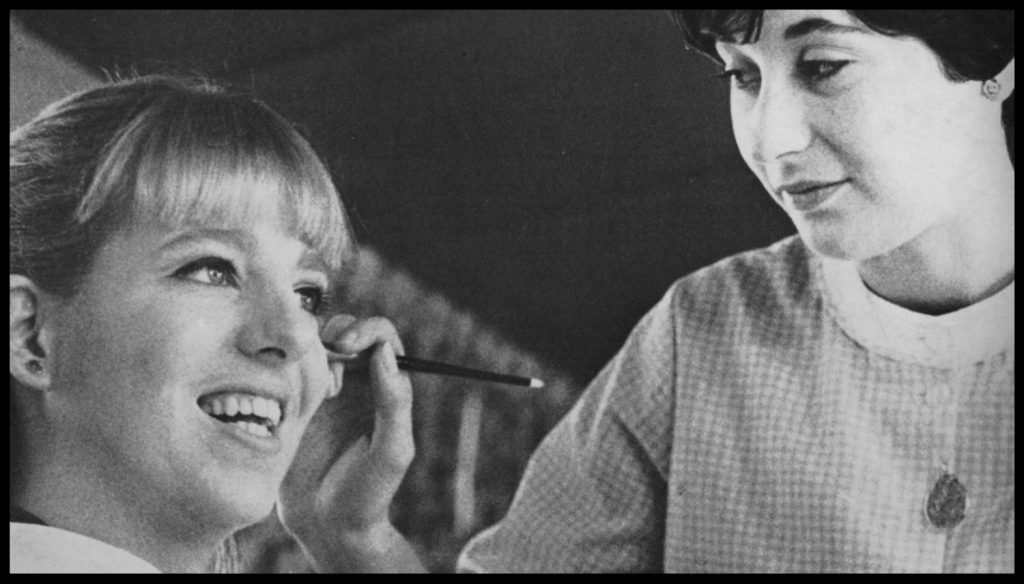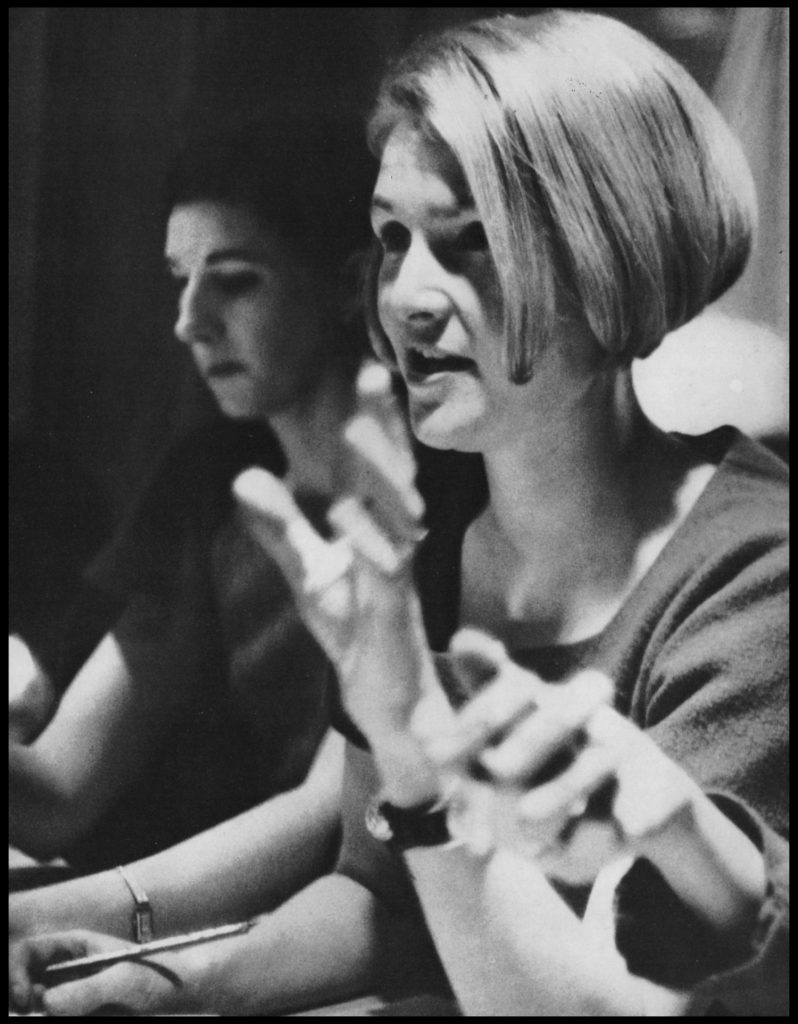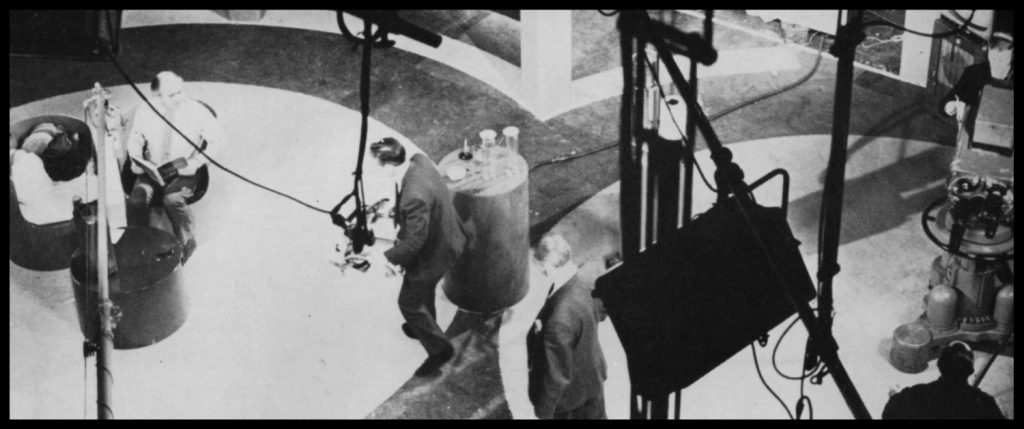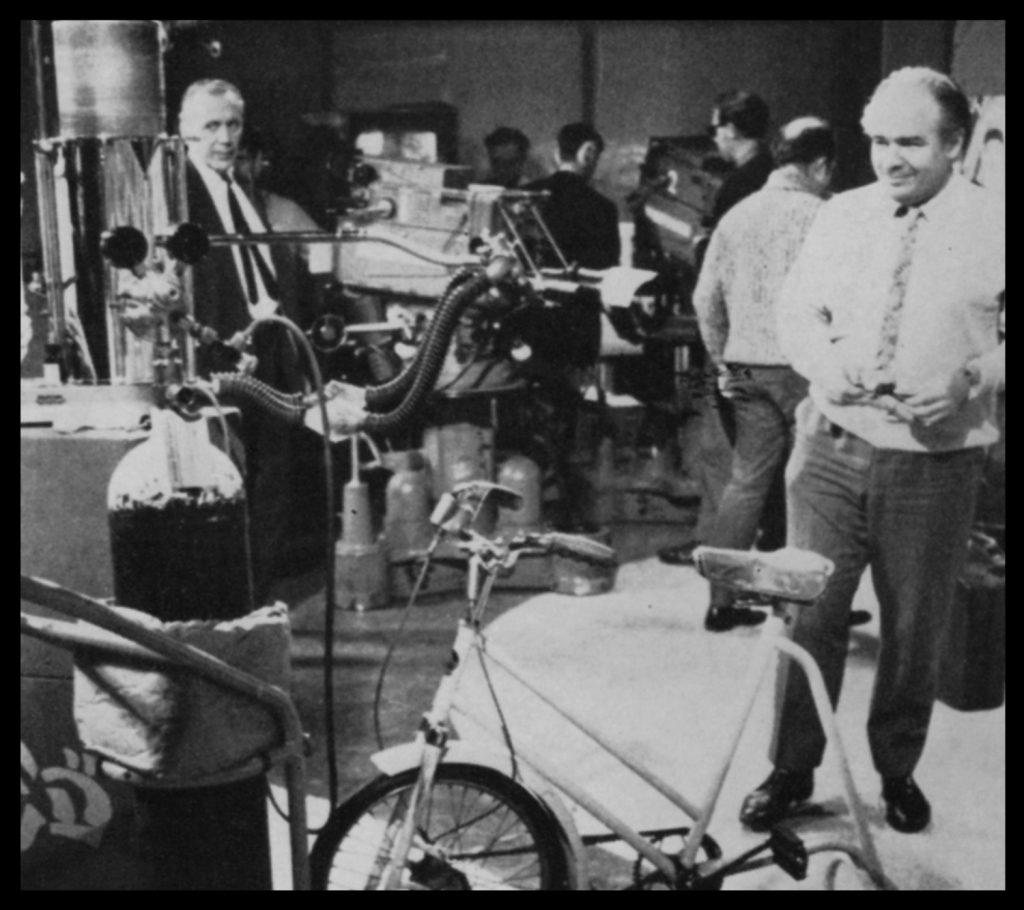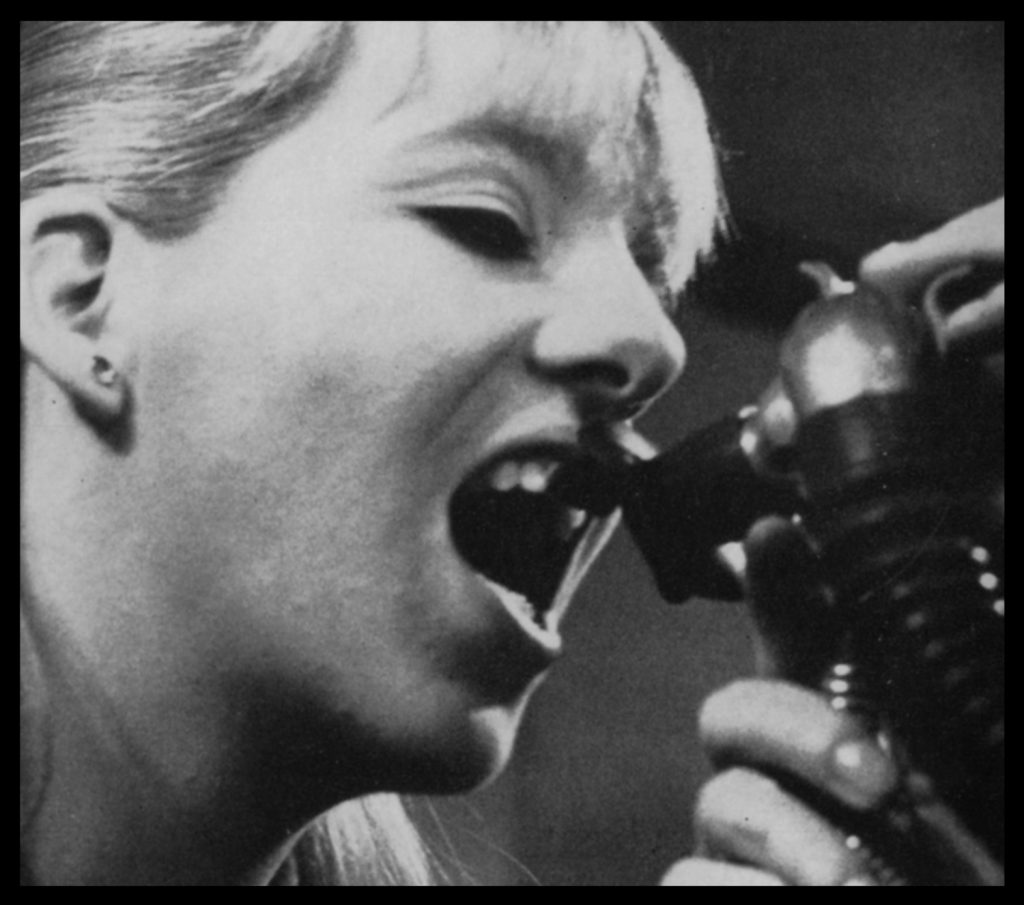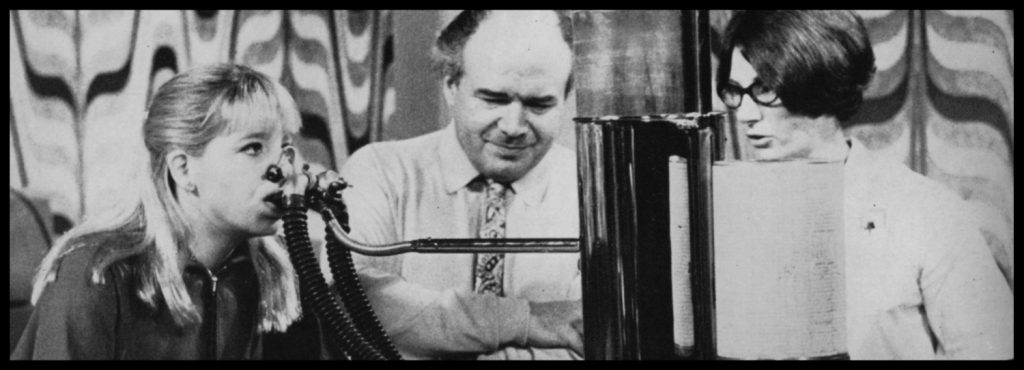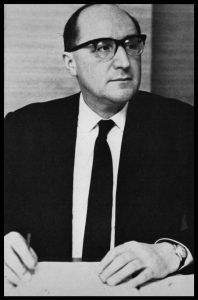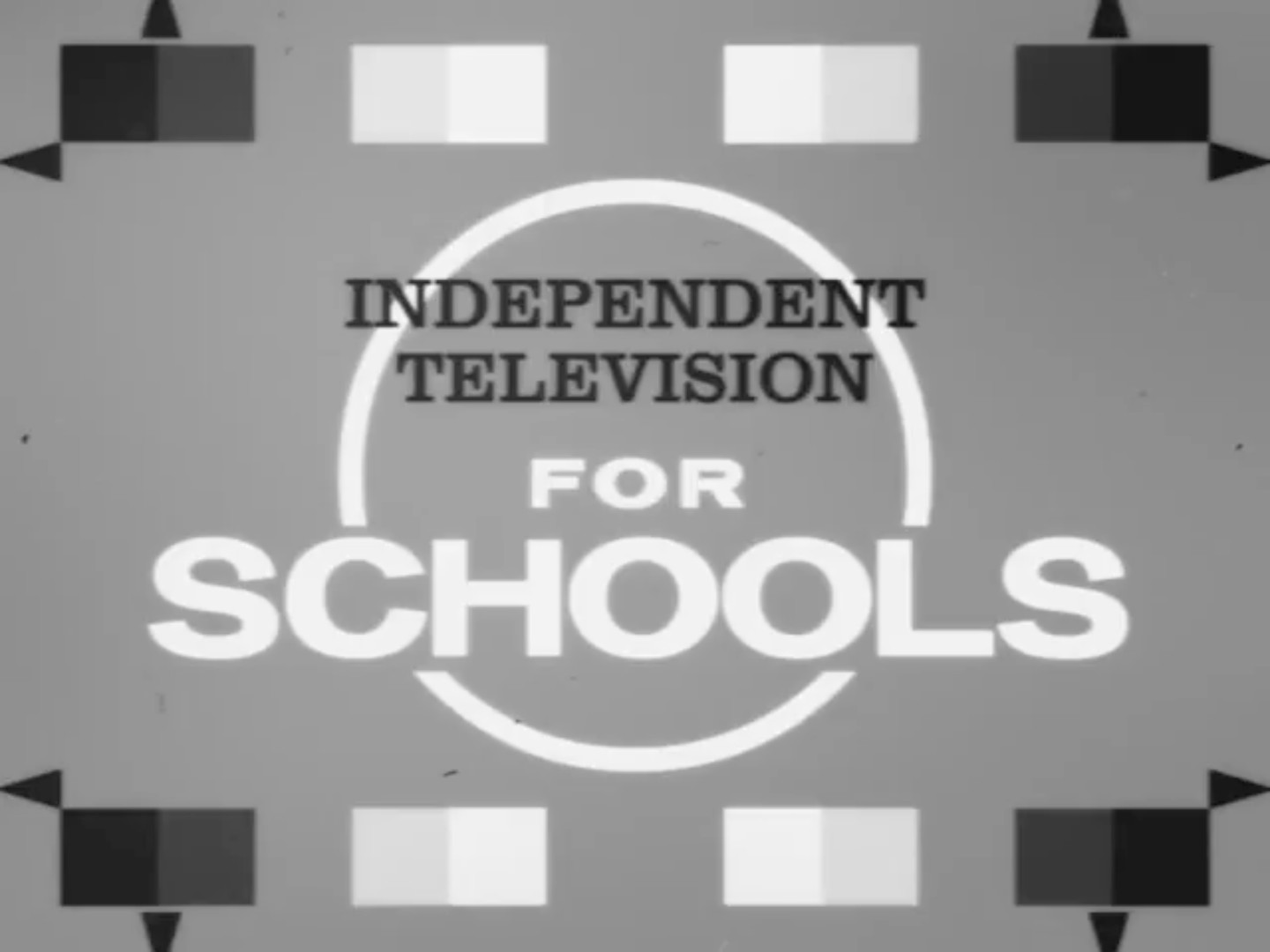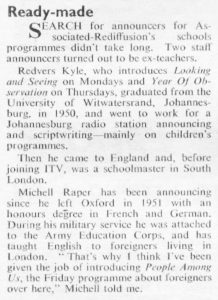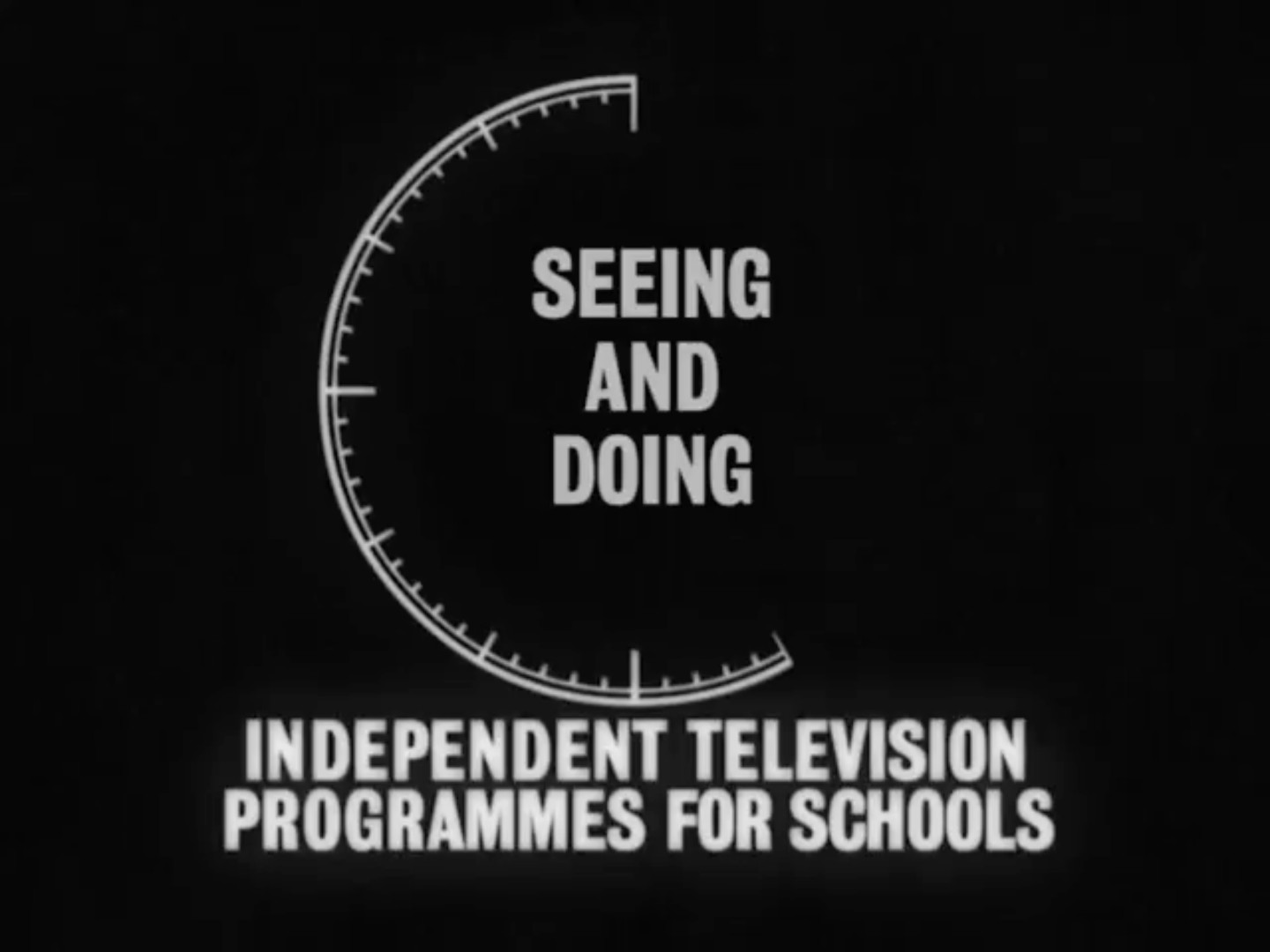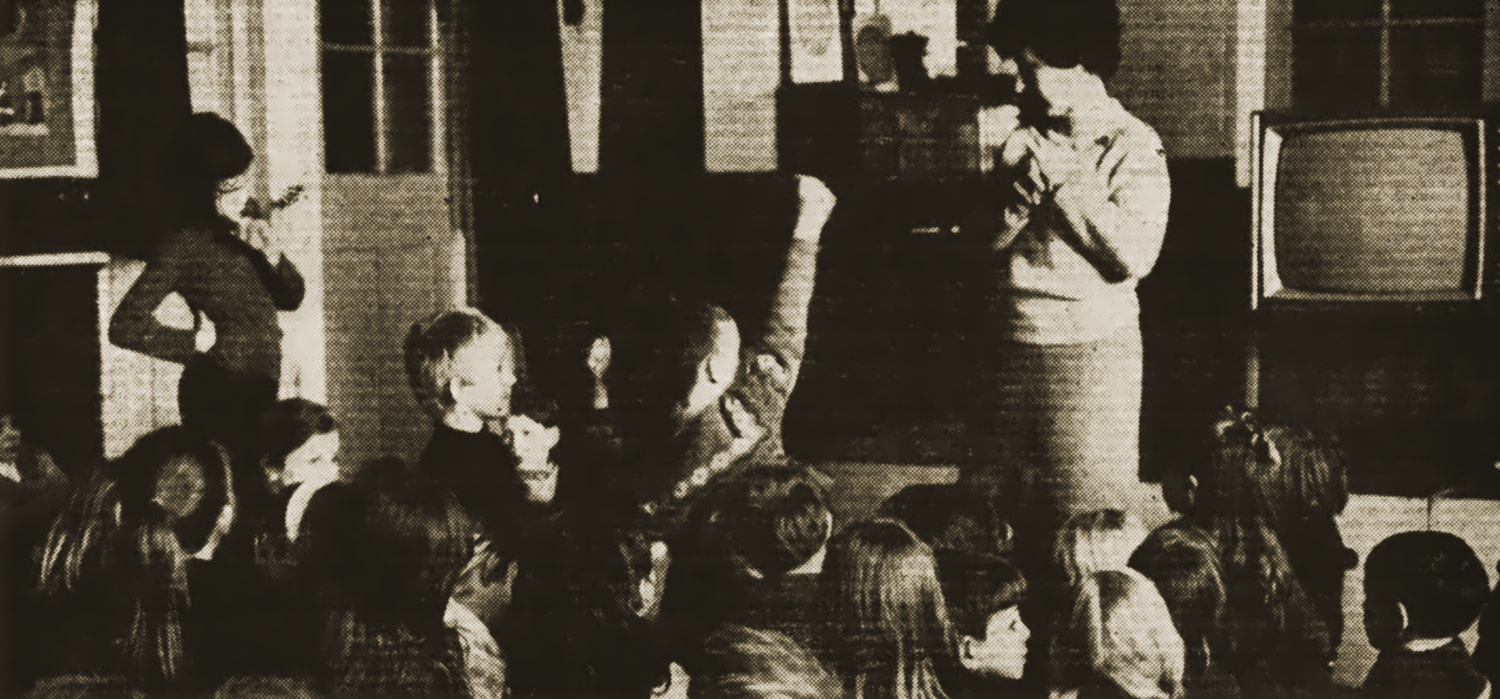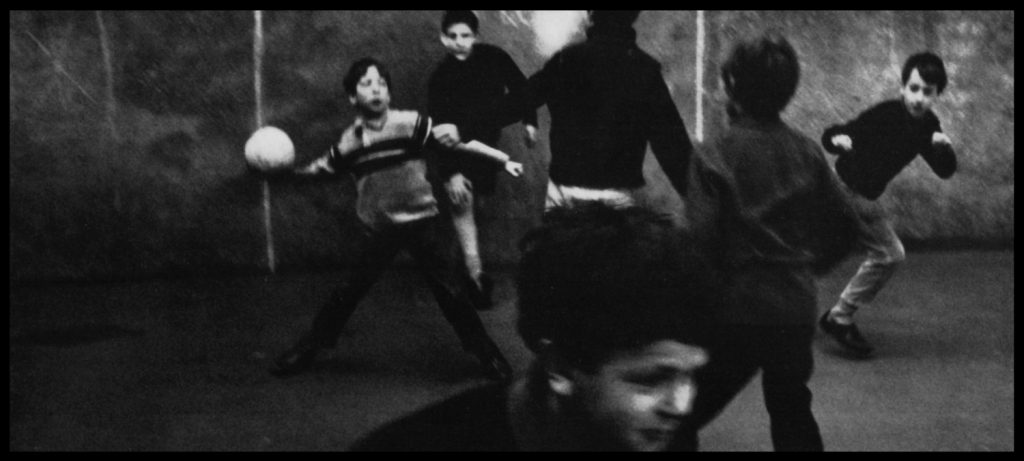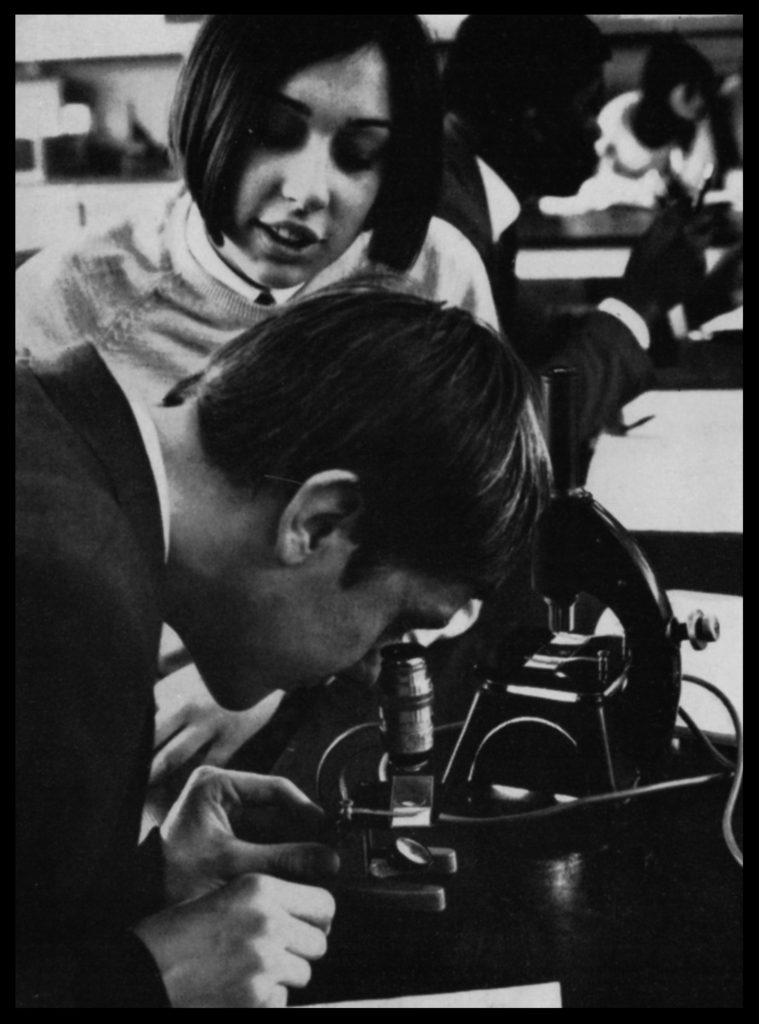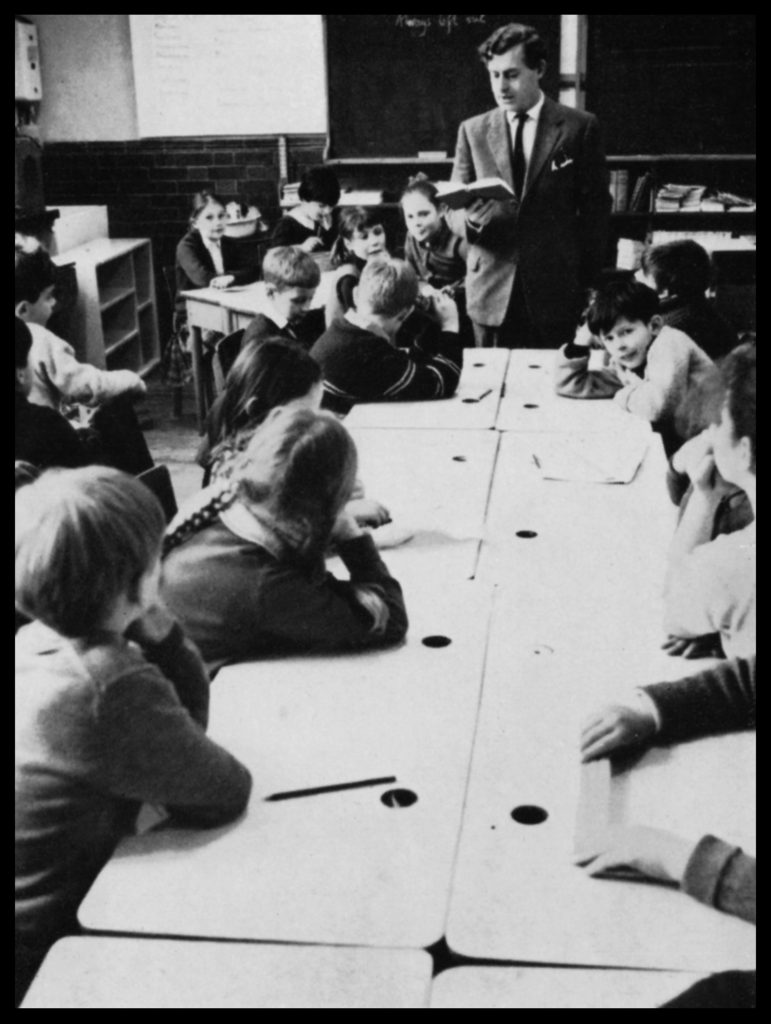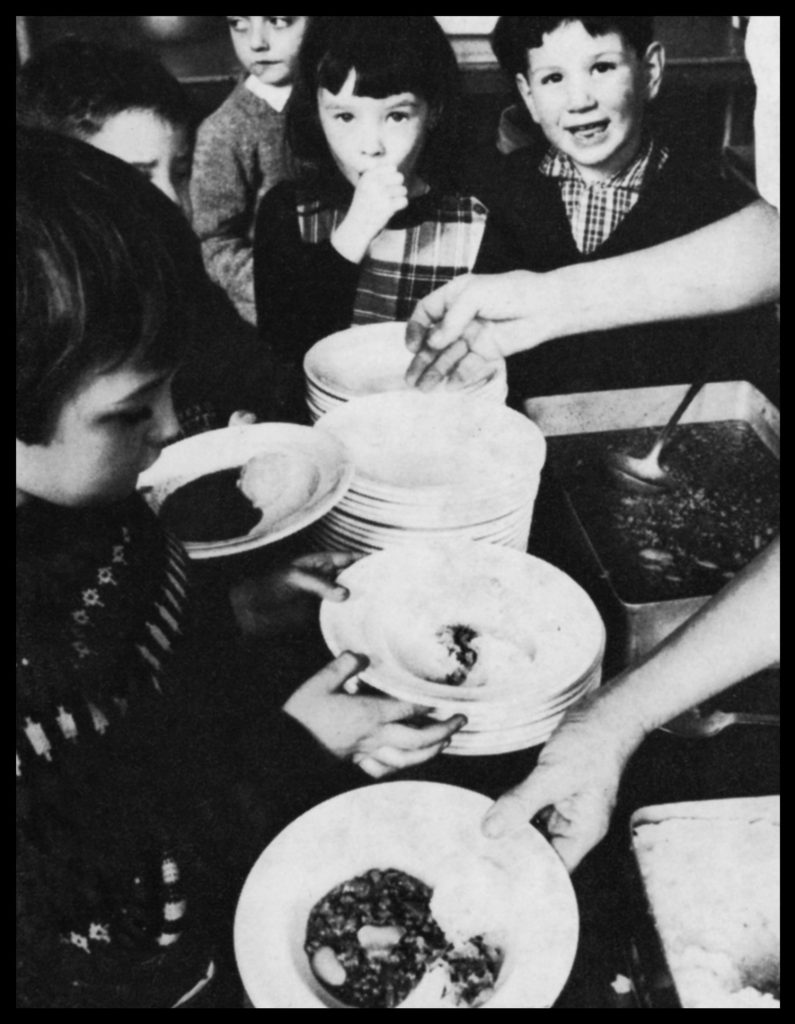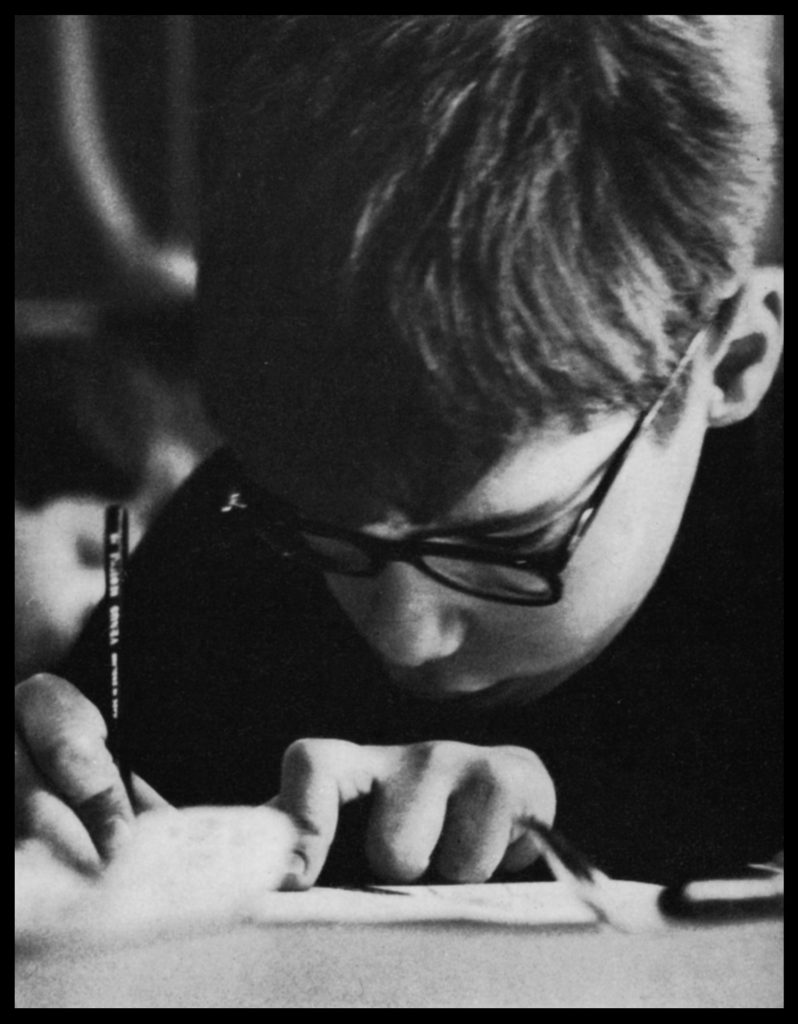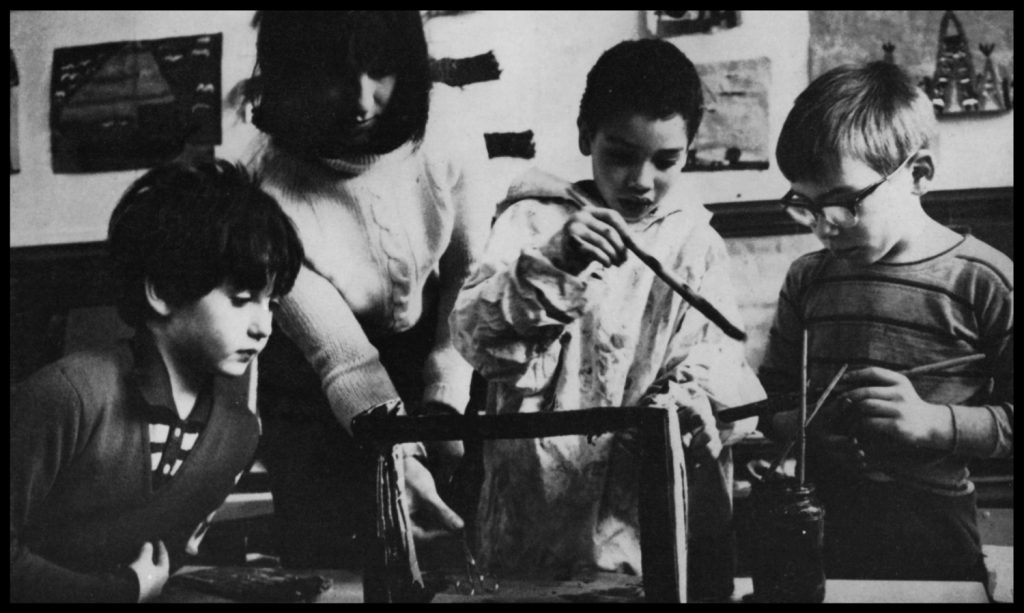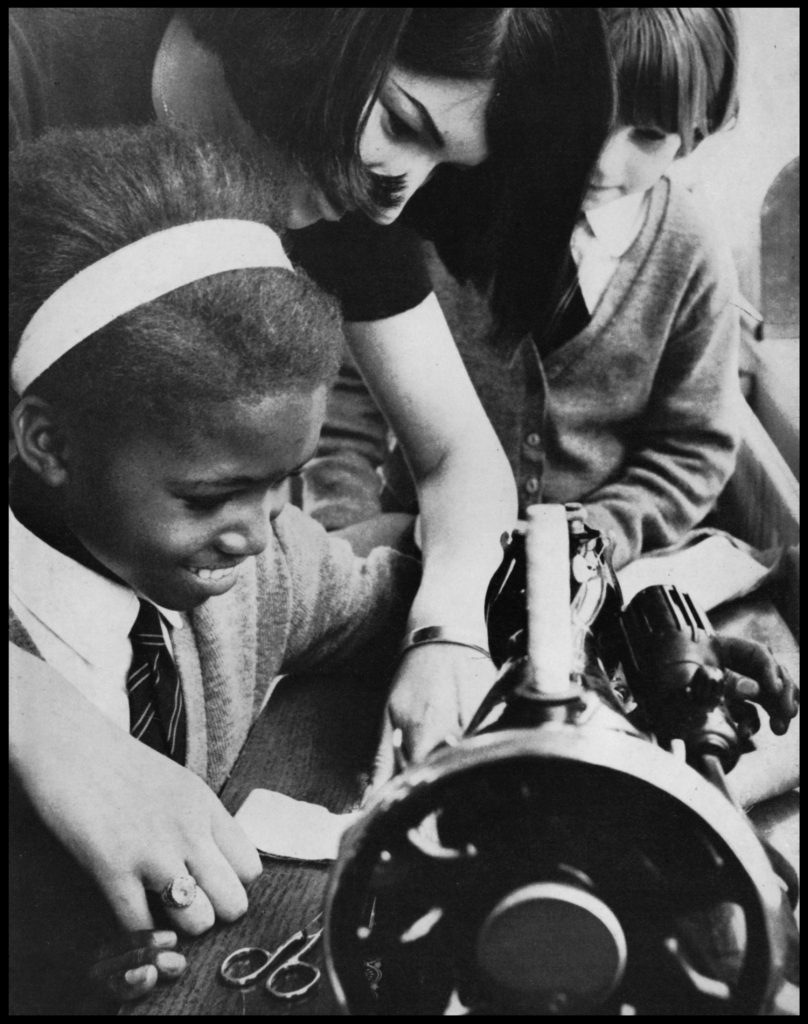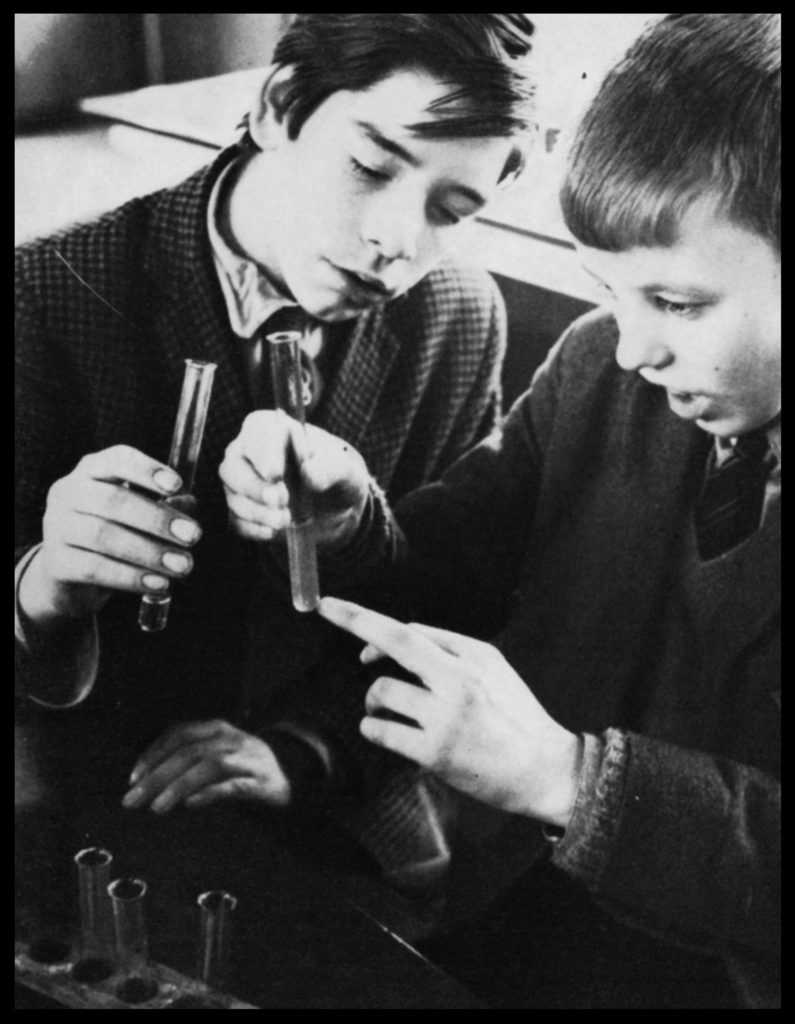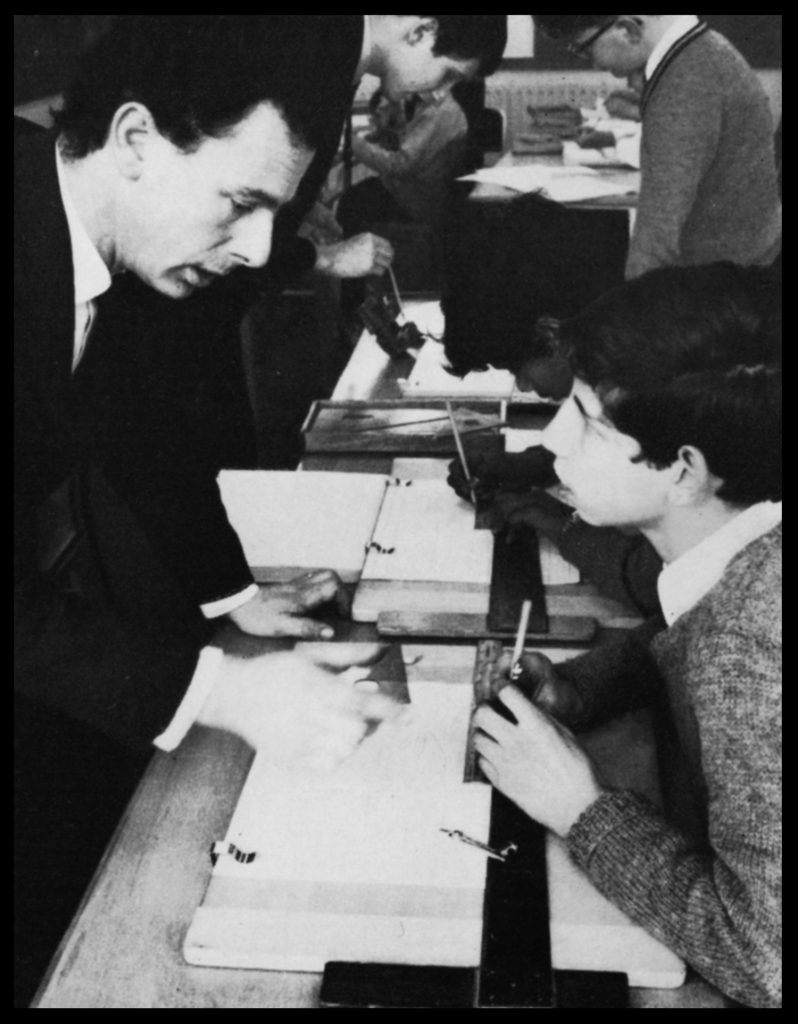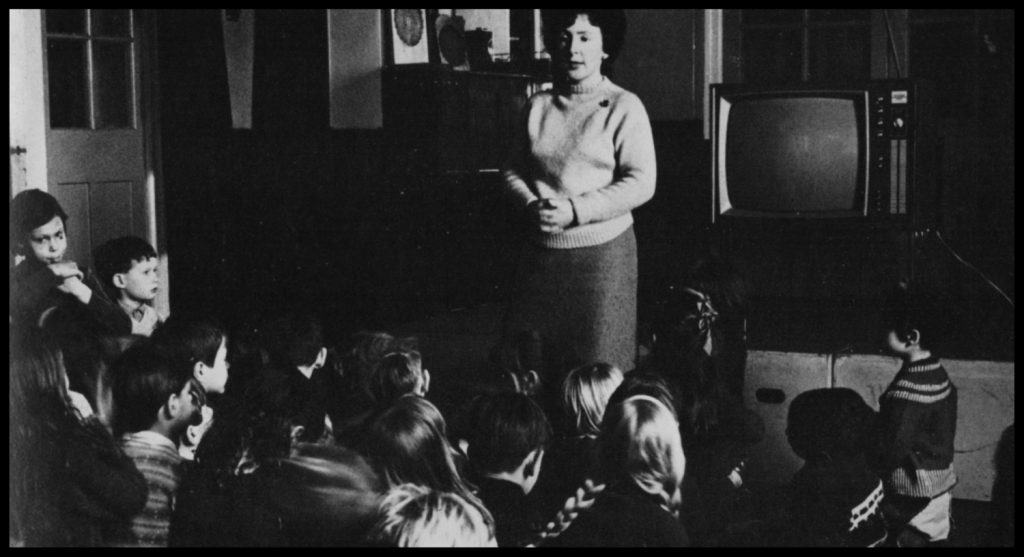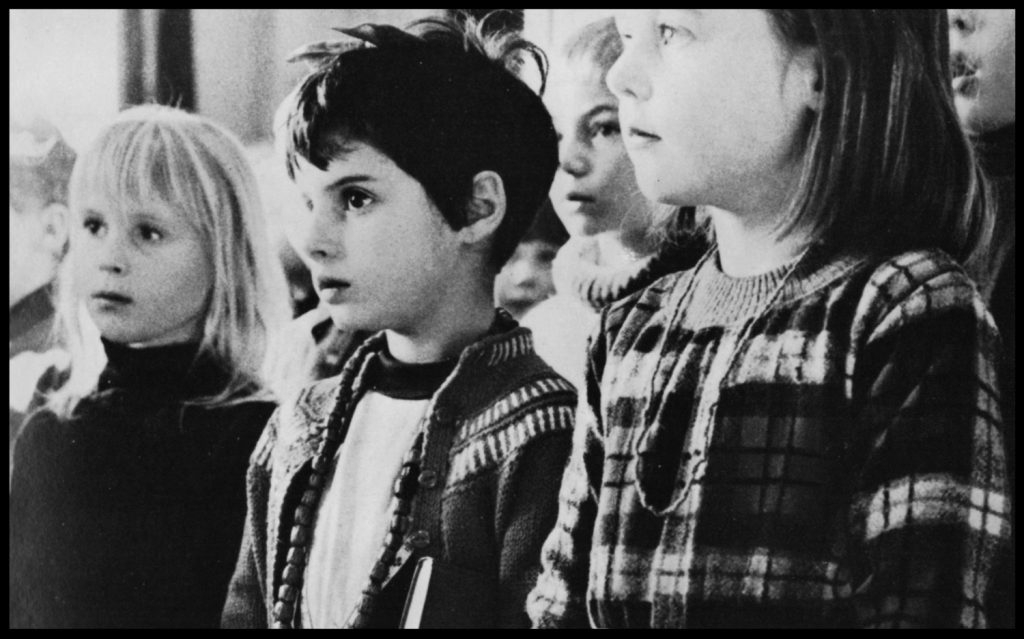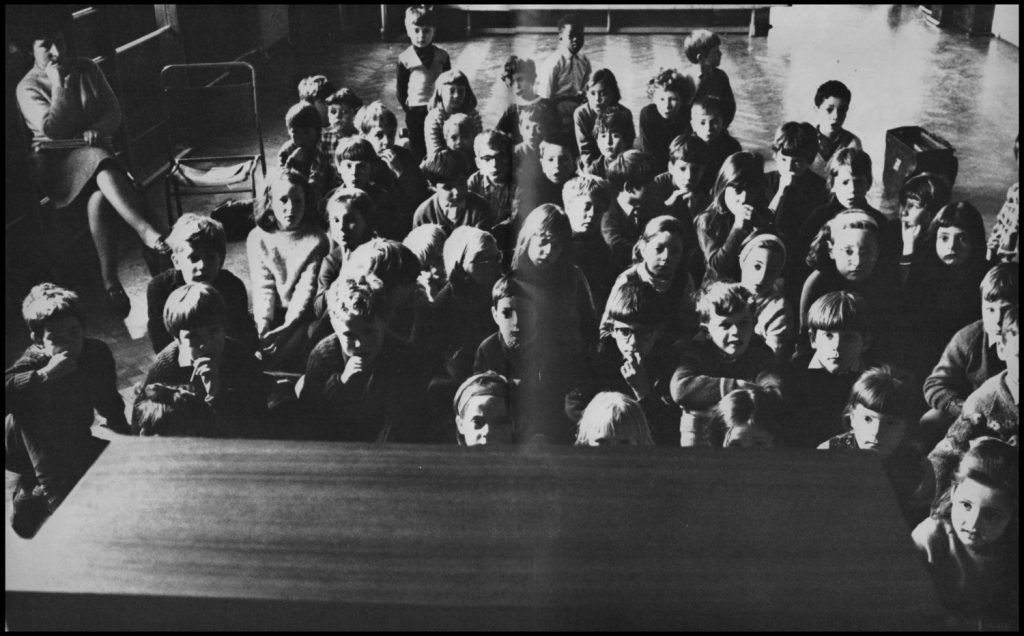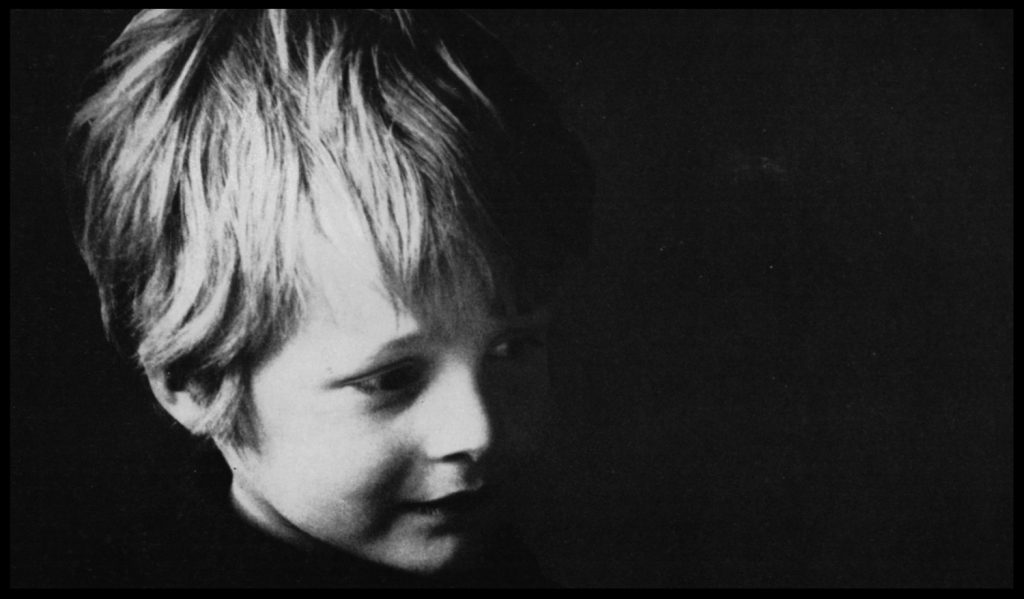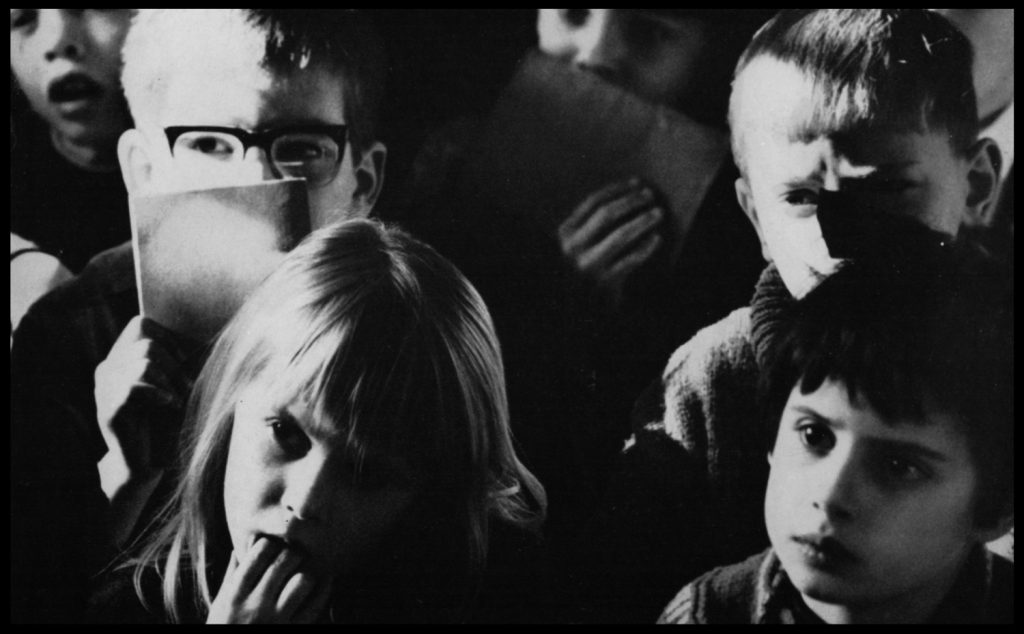The series at present being produced by Rediffusion Television are intended for children in the 7 to 16 age group. They are:
FINDING OUT
A series for children in top infants, transition and first-year junior classes. Through mime, song, art, movement, stories and film, active participation by the children is encouraged. This year’s subjects have included bread, milk, paper, chocolate, tea, weather, railways, post, telephone, West Indies, Iran, and human activities.
THE WORLD AROUND US
This series for 9 to 11-year-old children is designed to help teachers in primary schools who have no specialist training in science and little apparatus at their disposal. Illustrated sheets giving diagrams of suggested experiments are produced for the teachers and pupils. This year’s topics are: time, space, heat, cold and size. The programmes are broadcast at fortnightly intervals to allow time for follow-up work.
PEOPLE AT WORK
This specially filmed series for 9 to 11-year-olds gives accounts of the lives of people whose work helps the community. Programmes deal with the work of the lighthouse keeper, the butcher, the postman, the vet, and the bus crew.
A TIME AND A PLACE
The aim of this series for 9 to 11-year-old children is to teach them to study all animals more intelligently. It deals with the function and different types of work of zoos, emphasis being placed on what goes on behind the scenes. Feeding, science at the zoo, environment, vertebrates, birds and mammals are among the subjects.
WAYS WITH WORDS
This English series for 12 to 13-year-old children in secondary schools aims to stimulate discussion and creative writing by giving pupils a variety of emotional experiences. Each programme has a single theme interpreted in many different ways. This year the themes include “Laziness”, “Protest”, “Silence”, “Tricked”, “In the Red”, “No Man is an Island”, “Decision”, and “It’s all in the Mind”. Poetry, film montages, dramatised scenes and songs are some of the techniques used.
DRAMA
A drama series is a regular feature of the output of Rediffusion Television. This year a series of programmes, intended for pupils of 14 and over, is designed to make clear the nature of drama. It shows the major stages in the preparation and actual performance of a television play. The play itself, “A Change of Climate”, was specially written for school television and aims to present topics for class discussion besides showing technical aspects of production.
SCIENCE IN USE
The programmes in this series are intended to supplement science courses taken by pupils in secondary schools. They aim to show ways in which the work of various scientists have an impact on the communal, domestic and recreational aspects of our life. Programmes on bridges, canals, tunnels, aircraft, ships; skating, mountaineering, sport, endurance, and pets are included.
FRENCH
Programmes in this series are designed not so much to teach grammar but to give pupils with an elementary knowledge of the language a chance to hear French used as a means of communication between French people in a French setting. Dramatised episodes have shown incidents in the life of one French family in a provincial town and of another family on holiday making a journey by boat along the waterways of Brittany. The language is kept simple and repetition of phrases is introduced in a natural way.
SOCIAL HISTORY
“The Golden Age” is a series for children in the lower secondary school showing many aspects of life in England in the Elizabethan era. The programmes are designed to arouse imagination and interest and lead to project work in viewing classes. The literature of the period is dealt with and, in particular, the Shakespearian aspects.
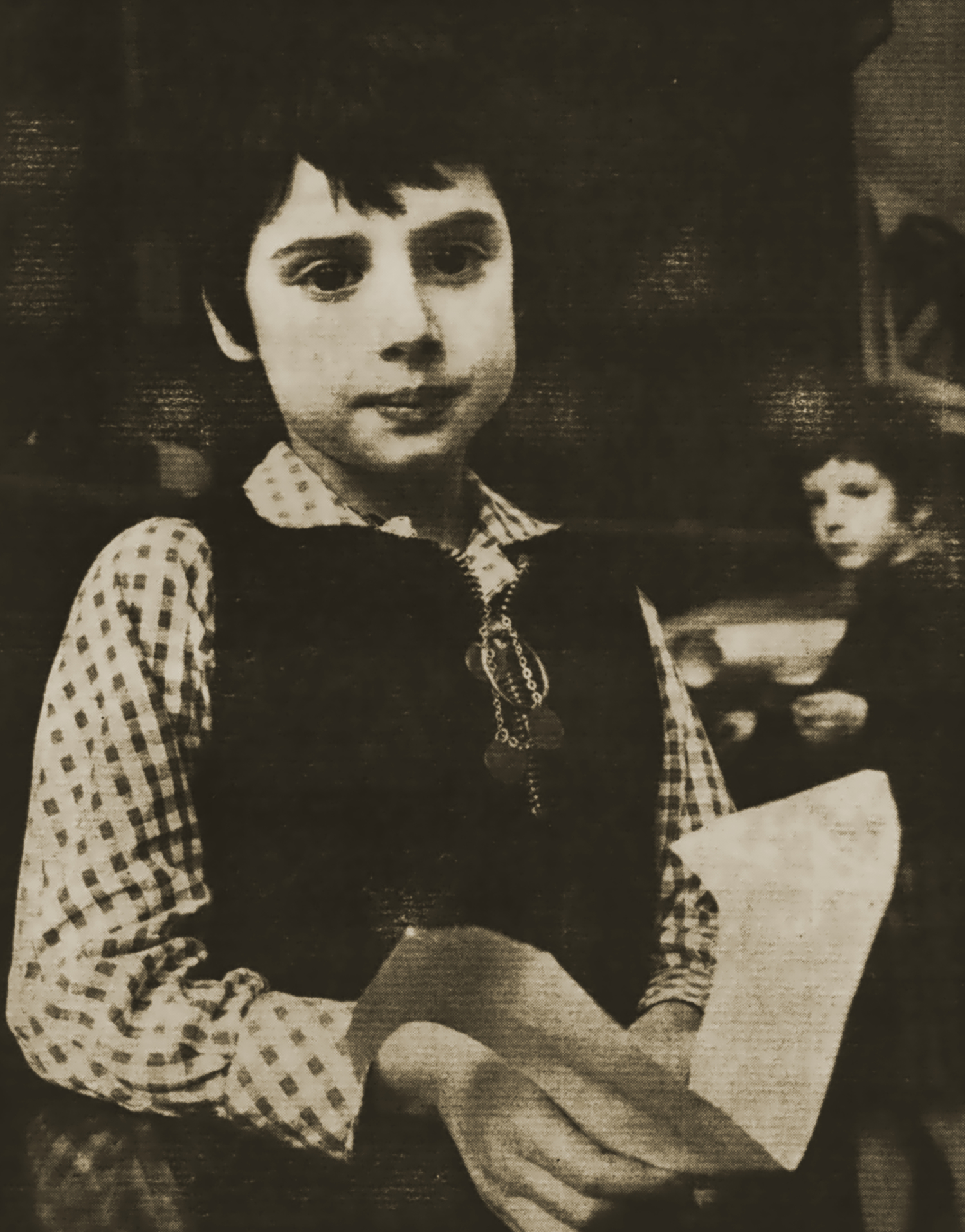
FUTURE PRODUCTIONS
Besides the continuation of established series: “Finding Out”, “The World Around Us”, French, Drama, English and Social History, new series are being planned for 1967—1968.
SEEING AND DOING
This series will be the first produced in Independent Television for middle infant classes. The programmes will be designed to involve the children of about 6 years of age and make them participate in the programmes. By using special techniques aimed at arousing their natural curiosity, the producers hope to encourage the children to go on to make discoveries of their own and become more aware of the world in which they live. Stories, mime and music which will appeal to the viewing classes will form the nucleus of the series.
SONG AND STORY
This is a new venture and a new departure in presenting music programmes for 9 to 11-year-old children. Songs with bold and simple tunes, from various parts of the world, will be given a visual interpretation with dramatisation, mime, film and dance, as well as straightforward singing.
Emphasis will be placed on the stories behind the songs as well as on their music. Through participation in the singing the children will be encouraged to find out more about the historical background of the songs and the events underlying them.
YOU AND THE WORLD
In 1967—1968 a completely new programme will be made for this series which was first presented four years ago. It will be for less-able secondary school pupils. A fully dramatised serial, based on incidents in the life of a family with teenage children, will introduce pupils to the society they will enter after leaving school.
APPROACH TO LIVING
In this new series for secondary school pupils, the aim is to help young people to orientate themselves in a changing world and take their place as responsible citizens. The programmes are designed to show the impact of scientific and technological advance on the individual and society. They will be presented in pairs: in each pair one programme will be concerned with the scientific study of a subject: the second with the effects of this study on daily life.












